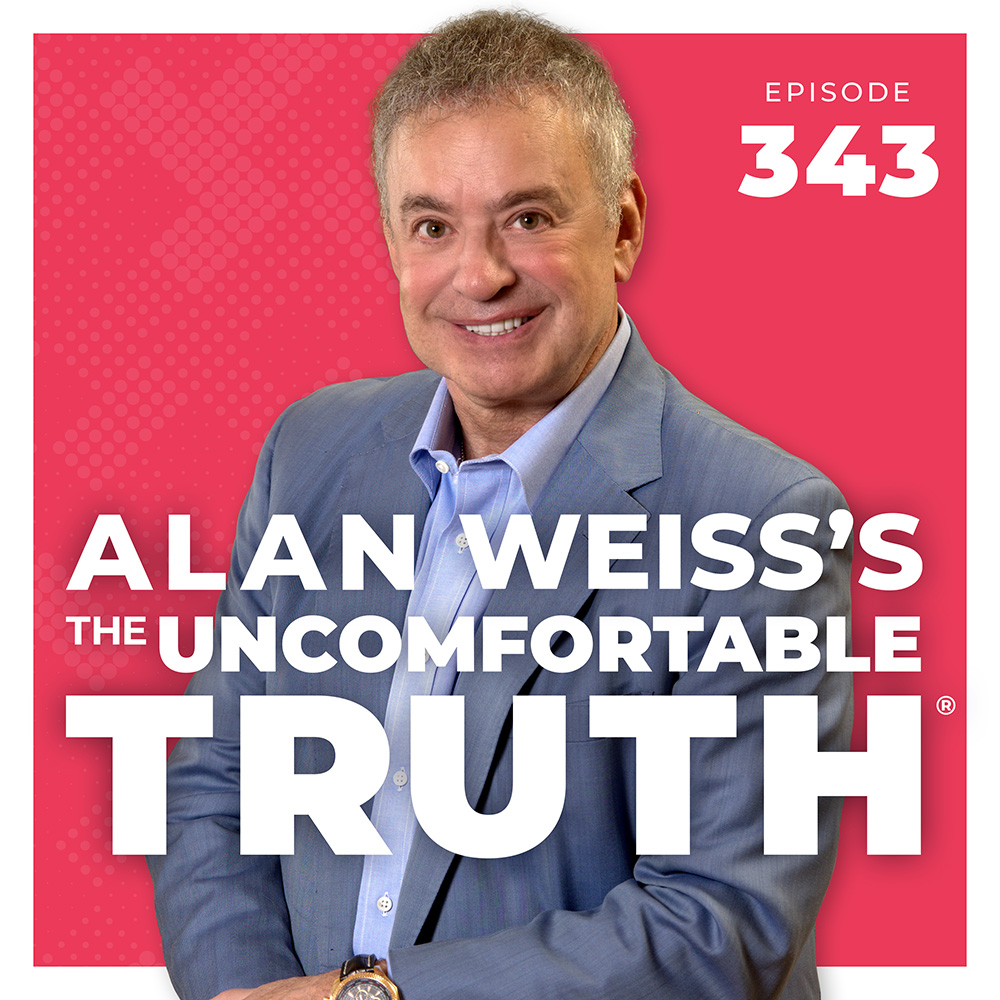Generosity
Meet Your Host, Alan Weiss
Alan Weiss is one of those rare people who can say he is a consultant, speaker, and author and mean it.
His consulting firm, Summit Consulting Group, Inc., has attracted clients such as Merck, Hewlett-Packard, GE, Mercedes-Benz, State Street Corporation, Times Mirror Group, The Federal Reserve, The New York Times Corporation, Toyota, and over 500 other leading organizations. He has served on several boards of directors in various capacities.
His prolific publishing includes over 500 articles and 60 books, including his best-seller, Million Dollar Consulting (from McGraw-Hill) now in its 30th year and sixth edition. His newest is Your Legacy is Now: Life is not about a search for meaning but the creation of meaning (Routledge, 2021). His books have been on the curricula at Villanova, Temple University, and the Wharton School of Business, and have been translated into 15 languages.
Show Notes
The best leaders and most successful people I’ve met also exemplify generosity. This is not an accident.
“Generosity” means “giving or sharing,” and being liberal in so doing. It isn’t primarily about money, but it is about credit, recognition, time, listening, coaching, supporting, and so forth. If it’s authentic, then it’s consistent, not situational. I’ve always thought the award winners who get on stage and thank 20 people are many times those whom the people being thanked have thought of as horrible, selfish people with whom to work.
Generosity is often about hard work and sacrifice, not merely “giving.” Writing a check is easy, serving at a soup kitchen is harder, chairing a nonprofit board that’s in trouble is harder still.
Caitlin Clark led basketball statistics in scoring, but she was also very highly rated in assists. Mentioning someone laudably in public (and on social media) is generous, as is not mentioning negatives. Refraining from complaining, especially over minor issues is generous. We often call it “giving the benefit of the doubt.”
Developing people is generous. Maya Angelou has noted that “we train animals, but we should educate people.” We shouldn’t assume people are somehow “damaged” and require remedial work (which most self-help books do). We shouldn’t project our personal shortcomings to others, as if they must be universal to salve our egos (this is called “projecting”).
Being vulnerable and honest is generous. To admit our mistakes and fears to others is a generous act, encouraging them to feel safe doing so, and enabling them to try to help us and that we will willingly listen. We should also overlook minor flaws that may discomfort us but are trivial in the large scheme of things.
I had a coaching client who told me he was annoyed when one of his customers chewed on the ice from a drink. I asked if this were somehow dysfunctional. He said it was just irksome. I suggested he just live with it and forget it. But, ungenerously, he told the client that the habit was irritating. The customer then told him to “get lost.”
Refraining from holding a grudge or harboring resentment is generous, as is never taking things personally. (I didn’t make a sale at this time in this place to this person. That doesn’t mean the person doesn’t like me or that I’m not worthy.)
And remember Joseph Epstein’s famous observation: “The true measure of generosity is not how much one gives but how much, after giving, one has left over.” It’s a fundamental concept or philosophy about life.
Alan Weiss’s The Uncomfortable Truth® is a weekly broadcast from “The Rock Star of Consulting,” Alan Weiss, who holds forth with his best (and often most contrarian) ideas about society, culture, business, and personal growth. His 60+ books in 12 languages, and his travels to, and work in, 50 countries contribute to a fascinating and often belief-challenging 20 minutes that might just change your next 20 years.
Introduction to the show recorded by Connie Dieken
LISTEN TO PAST EPISODES
